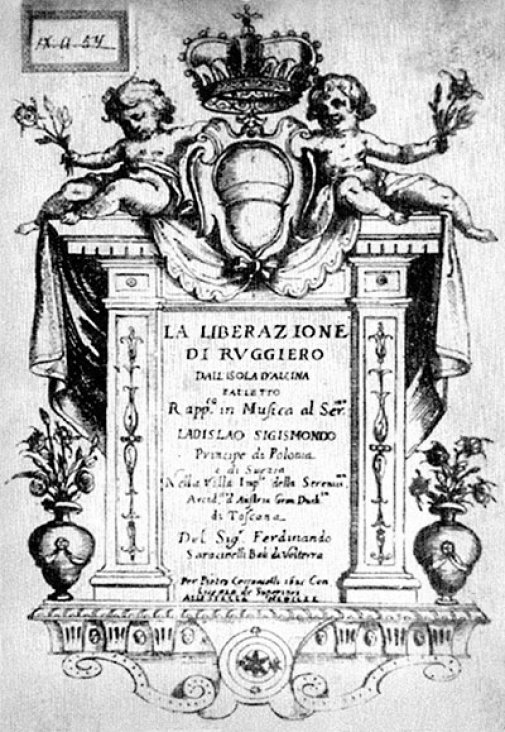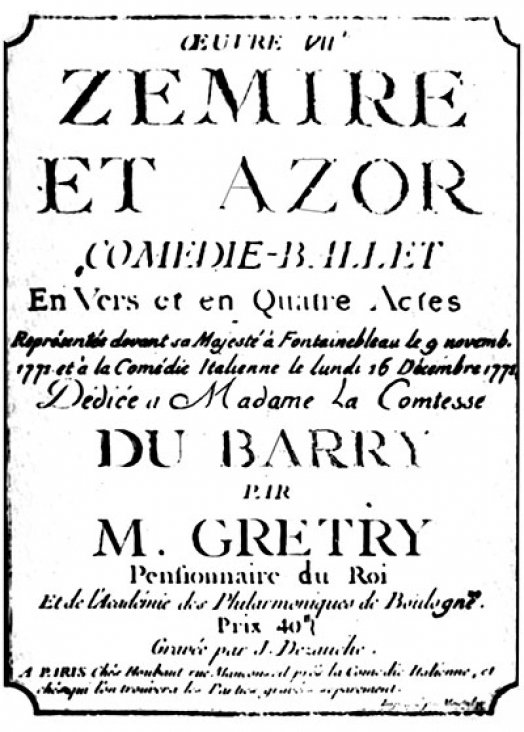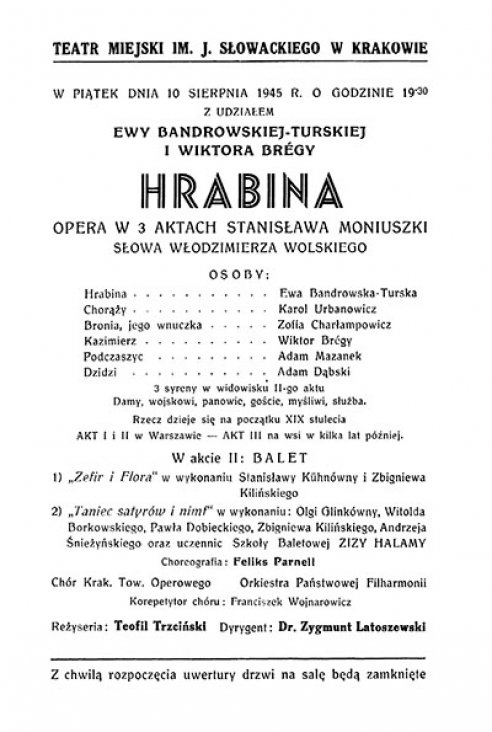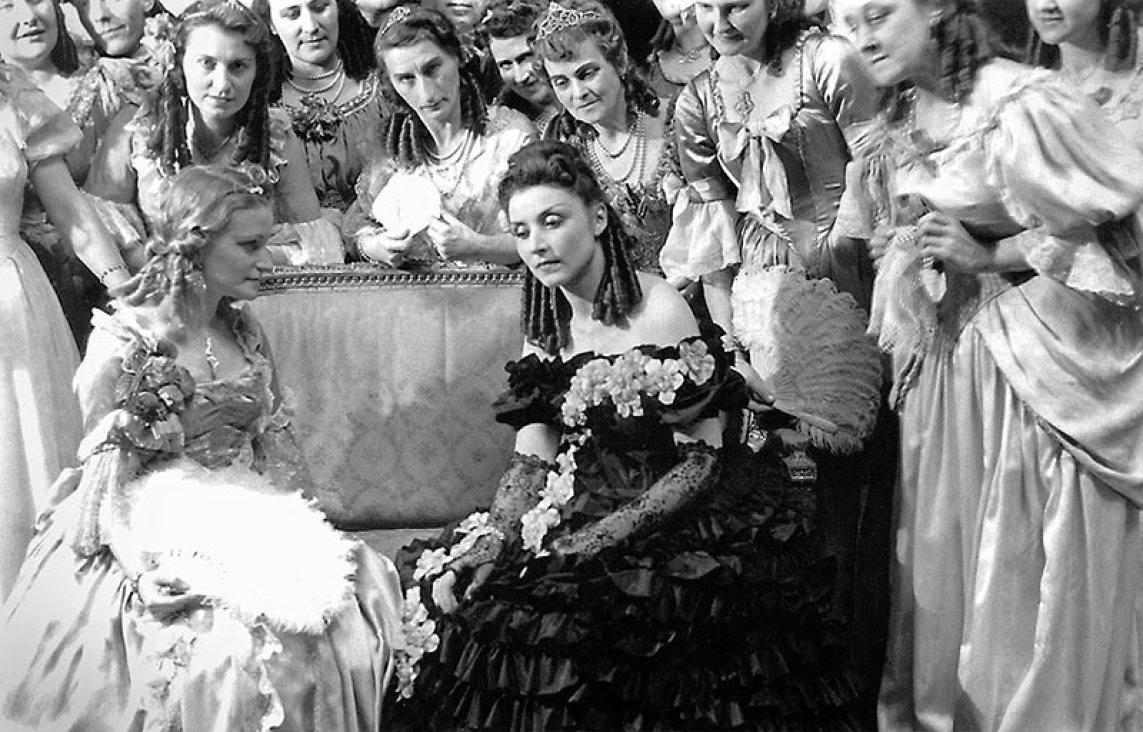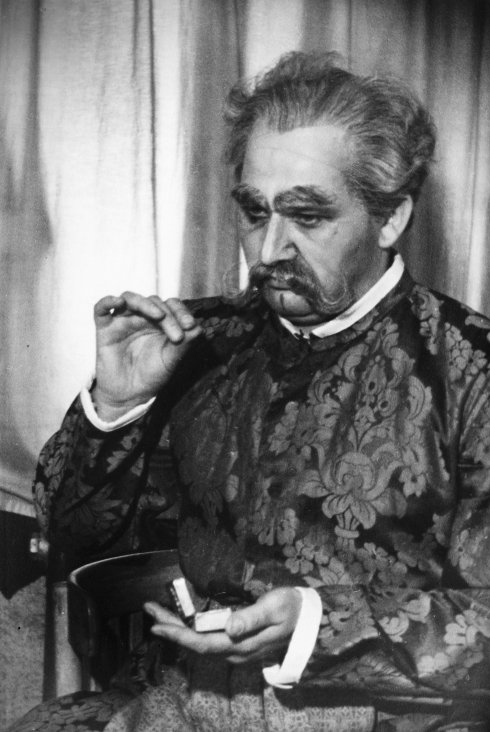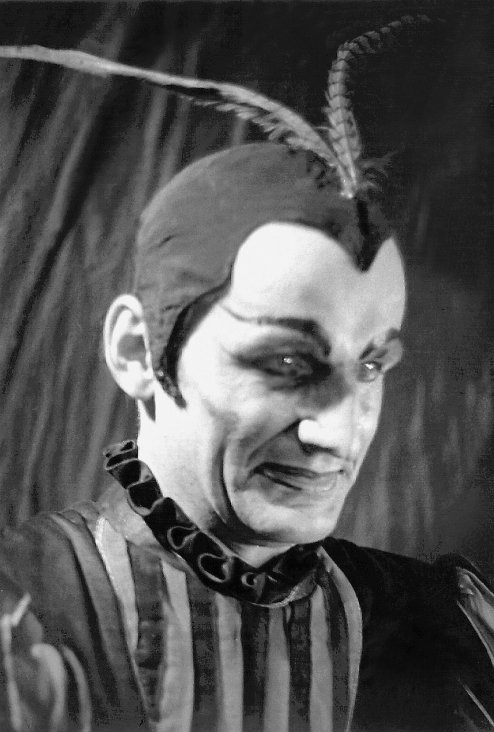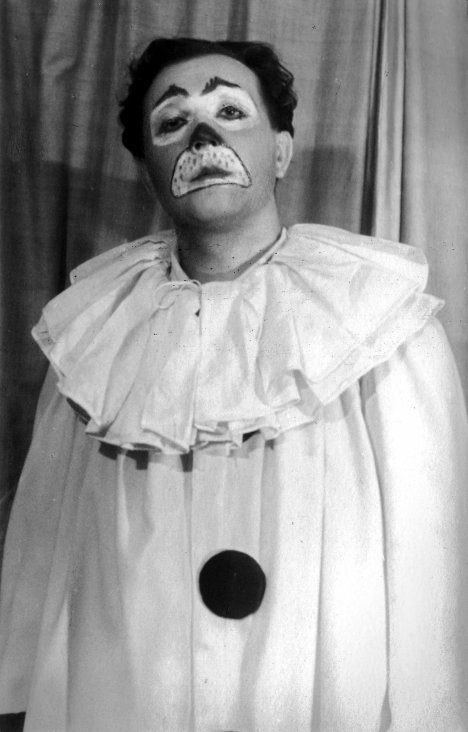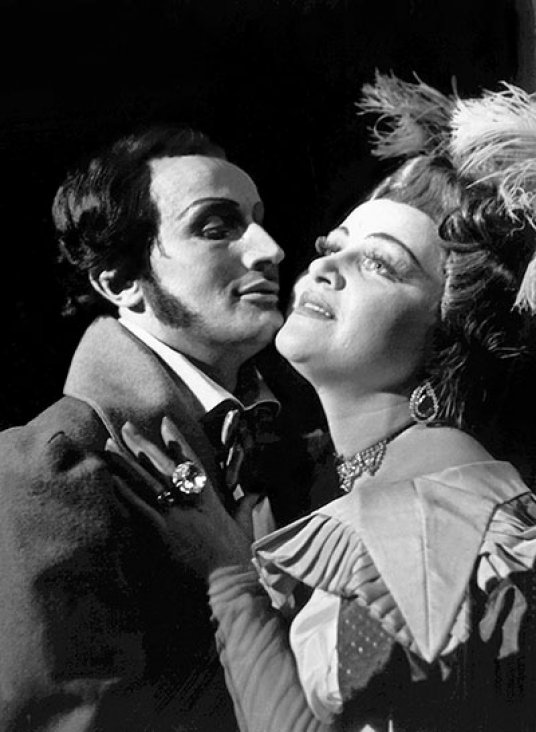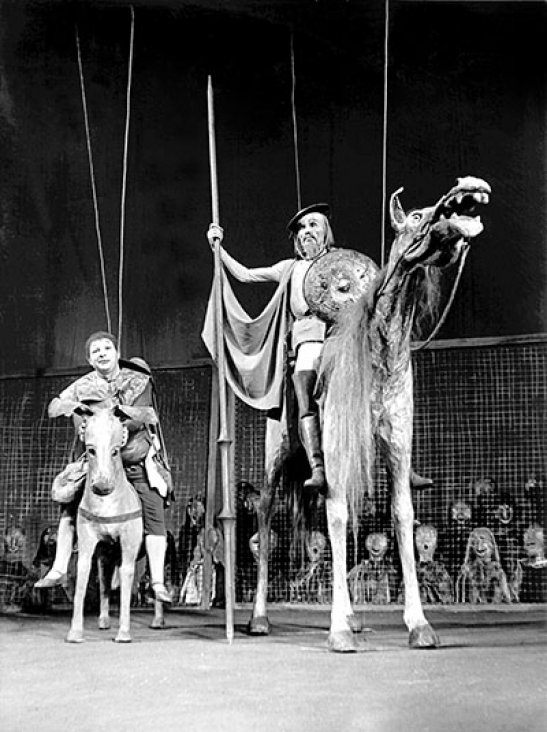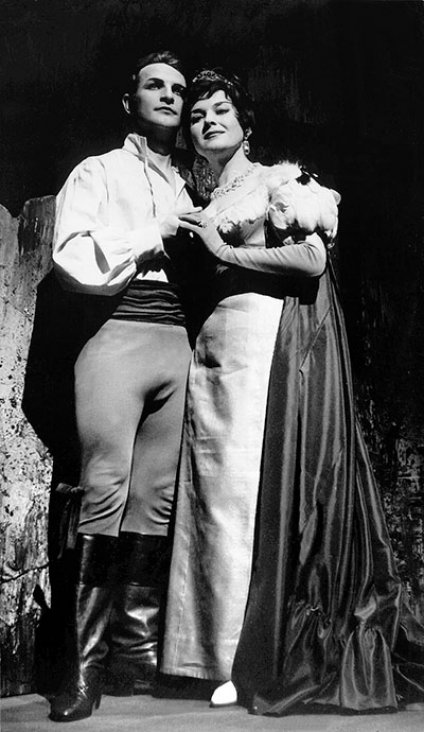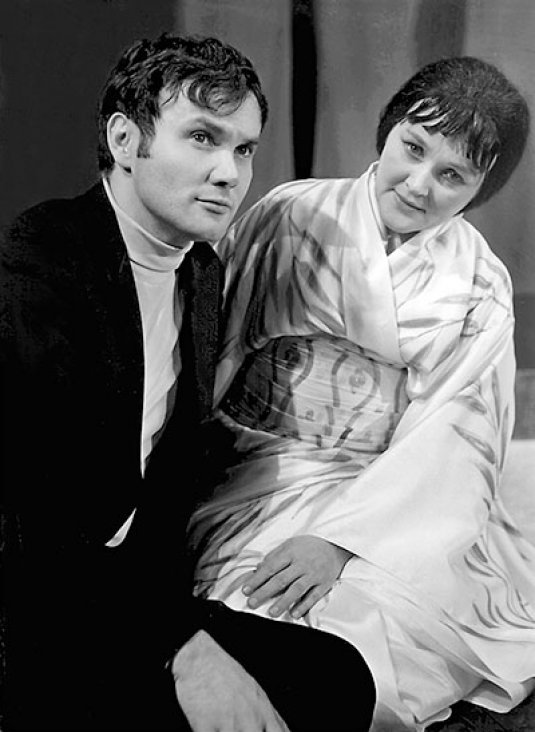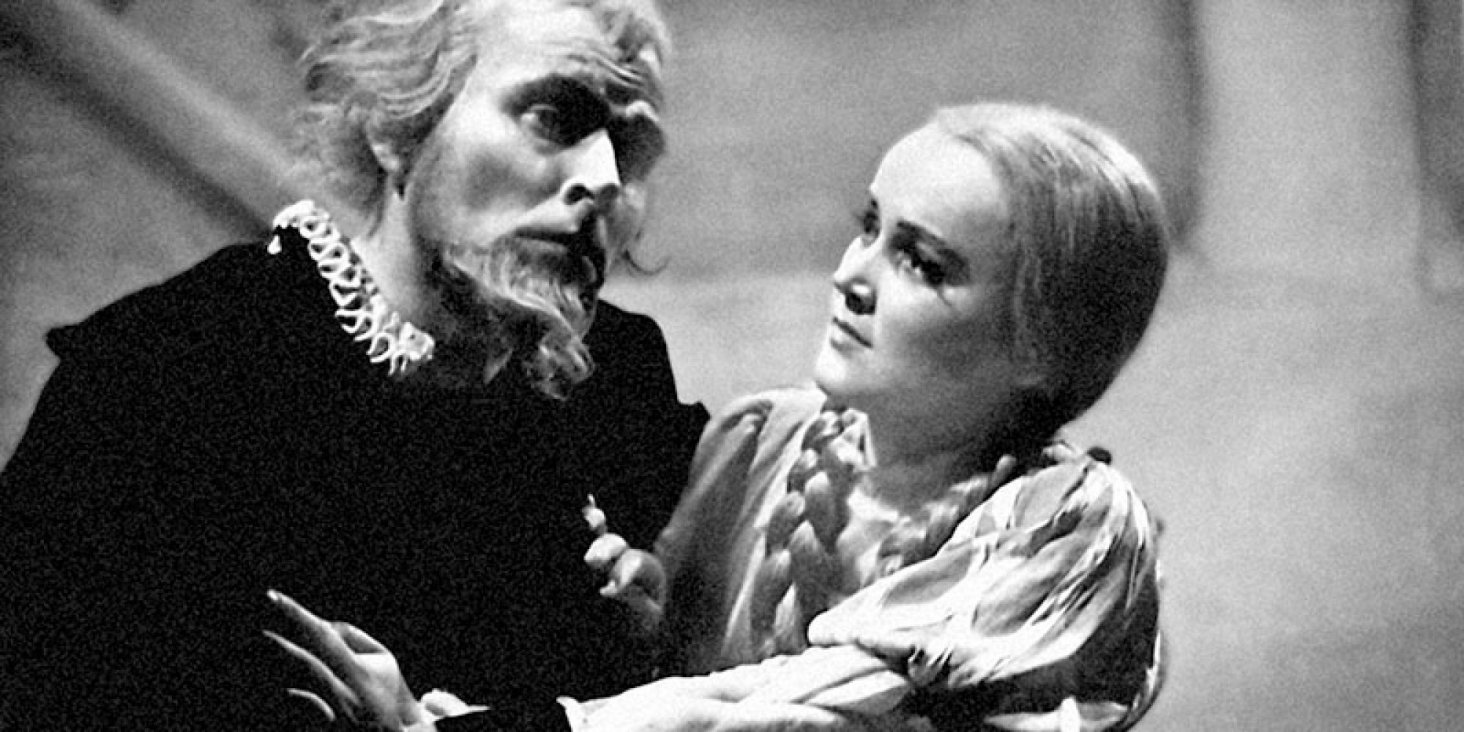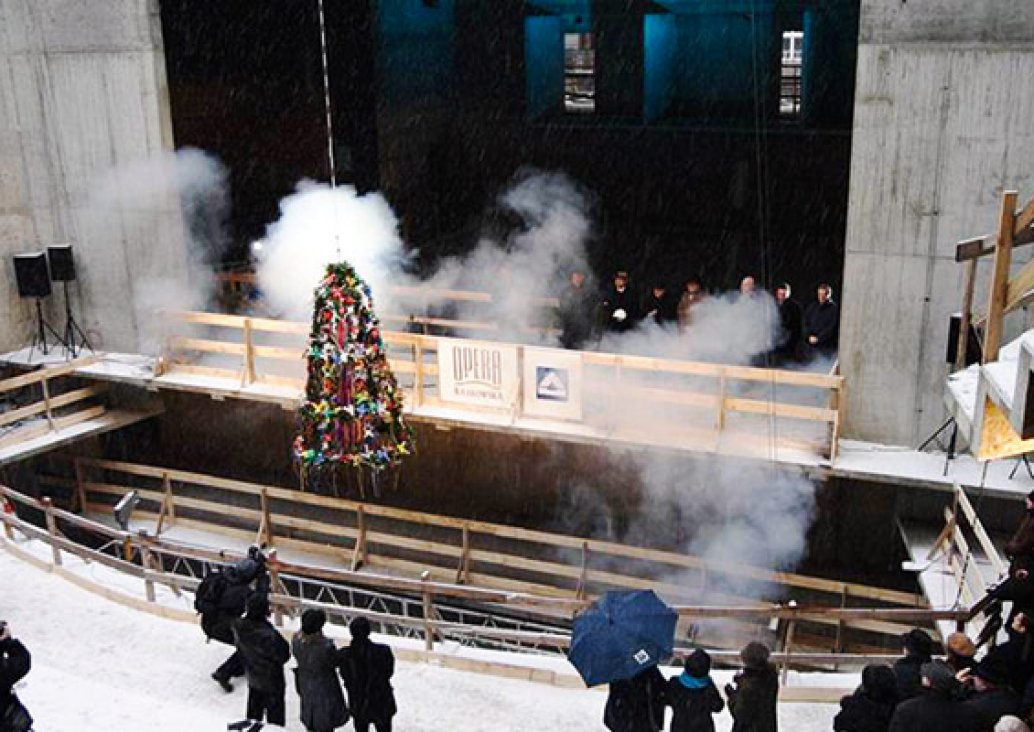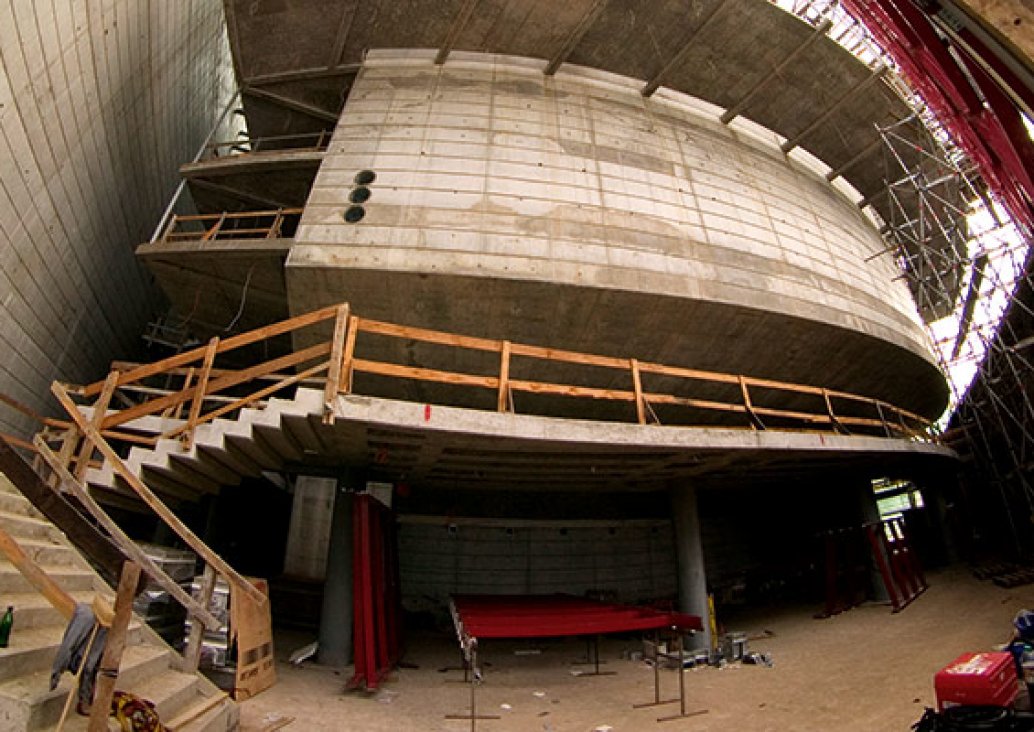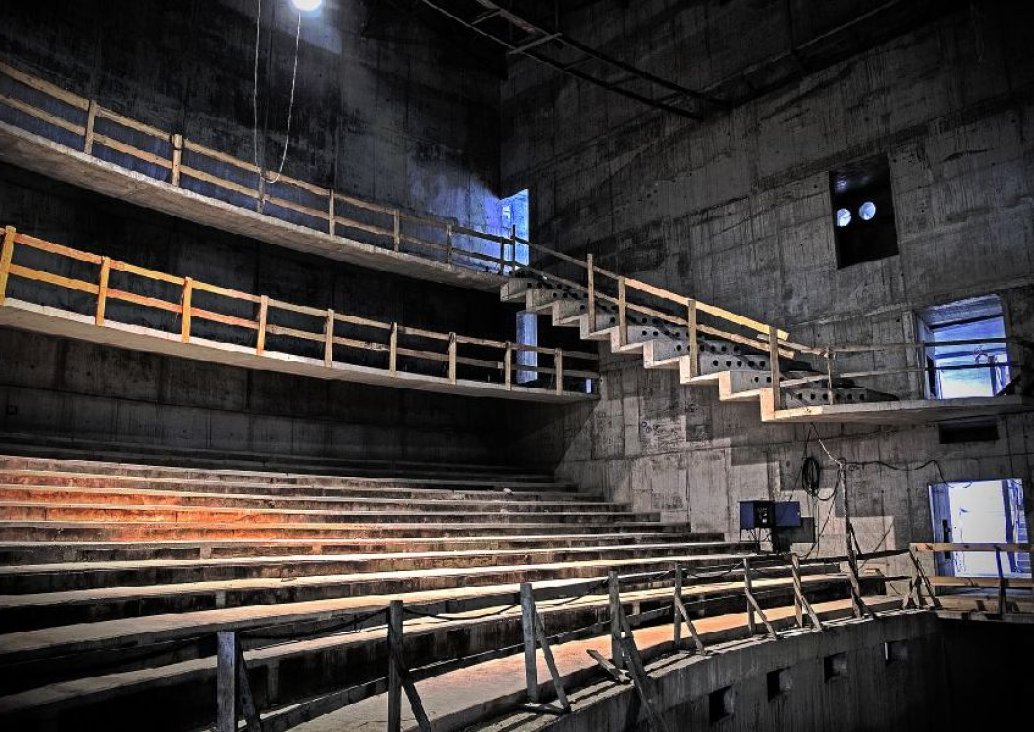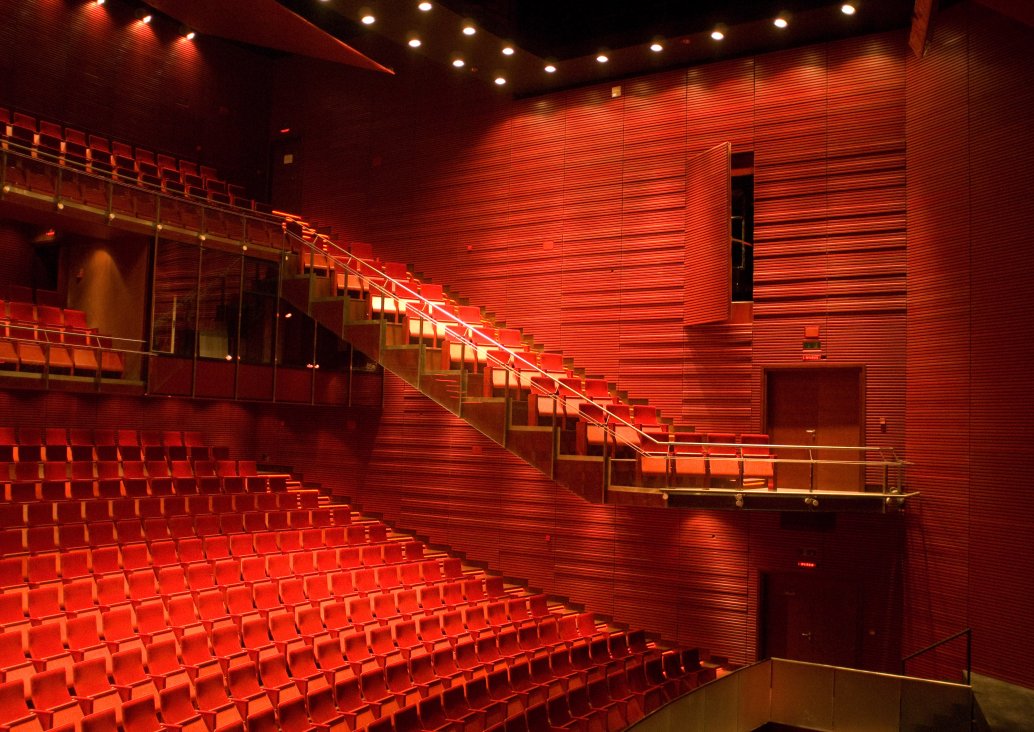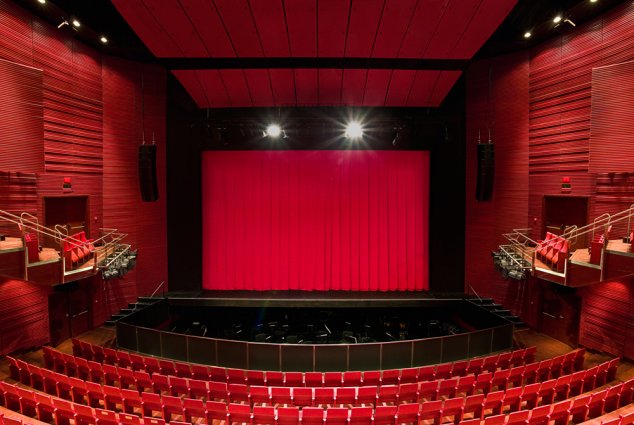
History
History
FROM THE HISTORY OF THE OPERA TRADITION
Krakow’s connection to opera goes back to 1628 when one of the city’s printing houses published the first libretto for an opera in Polish. It was a translation of the text to La liberazione di Ruggiero dall’isola d’Alcina (The Liberation of Ruggiero from the Island of Alcina) by Ferdinando Saracinelli, to which the music was composed three years earlier by Francesca Caccini – Italian singer and composer. The opera was staged in the Florentine court in 1625 to celebrate the visit of prince Władysław IV Vasa, who went on to become king, and included an allegoric prologue praising the deeds of the guest from Poland during war as well as the concluding ballet of horse riders.
King was denied, the premiere did not take place
Władysław IV later wished to enrich the coronation of his wife at the Wawel Castle with a performance of the piece, which eventually did not happen due to parsimony of the Krakow’s people and their distaste for opera. The situation remained unchanged in the following centuries – authorities were usually reluctant to spend money on culture and citizens mostly preferred simpler tawdry or pop culture entertainment.
There were, naturally, exceptions. In the following century, Italian operas were staged by prince Teodor Lubomirski in Spiš Castle, bishop Kajetan Sołtyk in Krzysztofory or the residence of canon Wacław Sierakowski, prefect of the Wawel Castle ensemble, in his Zerwikaptur palace at ul. Grodzka. But these were private initiatives for a closed circle.
Attempts by theatre entrepreneurs
The first public opera performance was of Zémire and Azor, an opéra comique by André Grétry – a Dutch composer working in Paris and Versailles – performed in March 1782 in Spiš Castle thanks to Mateusz Esmond, a theatre entrepreneur. But his theatre did not last long in the city. Nonetheless, this event is considered the birth of opera in Krakow.
A permanent opera theatre with its own stable ensemble did not emerge in the following century in Krakow despite the efforts taken from time to time by opera enthusiasts. Their initiatives would sometimes last for merely a year and fail, mainly due to money shortage or as a result of Russian forces entering the city, Austrian occupation or a fire. Most of all, opera did not generate revenue and was doomed to fail without the support of Krakow authorities.
A permanent opera theatre with its own stable ensemble did not emerge in the following century in Krakow despite the efforts taken from time to time by opera enthusiasts. Their initiatives would sometimes last for merely a year and fail, mainly due to money shortage or as a result of Russian forces entering the city, Austrian occupation or a fire. Most of all, opera did not generate revenue and was doomed to fail without the support of Krakow authorities.
Other ephemera
Juliusz Słowacki Municipal Theatre was built in 1893 and was initially supposed to house various stage genres, however, with economy in mind, the city, which owned the building, preferred to see it stage drama rather than opera.
In 1914 the Krakow Opera Association was established on the initiative of Bolesław Wallek-Walewski, composer and conductor. Between 1915 and 1921 it staged operas and operettas in the Juliusz Słowacki Theatre building, and on 1 September 1921 it received a former riding school at ul. Rajska 12 (currently Małopolska Garden of Arts). Bolesław Wallek-Walewski was the first director of Municipal Theatre – Opera and Operetta. Despite difficult conditions in the theatre building, he sought to ensure a high level of repertoire. In December 1923, due to lack of funds for renovations of the building, the Opera and Operetta ceased to exist in Krakow. Enthusiasts of the genre had to settle for guest performances of opera ensembles from Lviv, Warsaw, Katowice or Olomouc. The opera ensemble renewed its operations in 1931 thanks to Eugeniusz Bujański, who served as administrative director of Juliusz Słowacki theatre, and Bolesław Wallek-Walewski. Rehearsals took place in the Teatr Stary building and performances were staged once more on the stage at Plac św. Ducha on Sundays and Mondays. Despite hardships, the opera ensemble produced 32 premieres in eight years. The last one before the outbreak of war in 1939 was Werther by Massenet, conducted by Walerian Bierdiajew.
Soon after the military actions ended, the authorities of Krakow resumed the activities of Juliusz Słowacki Theatre as a dramatic and opera theatre. The opera ensemble inaugurated the revival on 10 August 1945 with the premiere of The Countess by Stanisław Moniuszko. Other opera and operetta initiatives appeared as well. They did not last, however, due to financial problems. Walerian Bierdiajew established an opera ensemble (without a permanent place of residence) in 1946 under the aegis of Towarzystwo Przyjaciół Opery (Society of Friends of Opera) and in close cooperation with the Krakow Philharmonic. It performed twice a week on the Juliusz Słowacki Theatre stage and produced 10 premieres within two years of its operations. Unfortunately, financial issues once again resulted in the break-up of the ensemble.
In 1914 the Krakow Opera Association was established on the initiative of Bolesław Wallek-Walewski, composer and conductor. Between 1915 and 1921 it staged operas and operettas in the Juliusz Słowacki Theatre building, and on 1 September 1921 it received a former riding school at ul. Rajska 12 (currently Małopolska Garden of Arts). Bolesław Wallek-Walewski was the first director of Municipal Theatre – Opera and Operetta. Despite difficult conditions in the theatre building, he sought to ensure a high level of repertoire. In December 1923, due to lack of funds for renovations of the building, the Opera and Operetta ceased to exist in Krakow. Enthusiasts of the genre had to settle for guest performances of opera ensembles from Lviv, Warsaw, Katowice or Olomouc. The opera ensemble renewed its operations in 1931 thanks to Eugeniusz Bujański, who served as administrative director of Juliusz Słowacki theatre, and Bolesław Wallek-Walewski. Rehearsals took place in the Teatr Stary building and performances were staged once more on the stage at Plac św. Ducha on Sundays and Mondays. Despite hardships, the opera ensemble produced 32 premieres in eight years. The last one before the outbreak of war in 1939 was Werther by Massenet, conducted by Walerian Bierdiajew.
Soon after the military actions ended, the authorities of Krakow resumed the activities of Juliusz Słowacki Theatre as a dramatic and opera theatre. The opera ensemble inaugurated the revival on 10 August 1945 with the premiere of The Countess by Stanisław Moniuszko. Other opera and operetta initiatives appeared as well. They did not last, however, due to financial problems. Walerian Bierdiajew established an opera ensemble (without a permanent place of residence) in 1946 under the aegis of Towarzystwo Przyjaciół Opery (Society of Friends of Opera) and in close cooperation with the Krakow Philharmonic. It performed twice a week on the Juliusz Słowacki Theatre stage and produced 10 premieres within two years of its operations. Unfortunately, financial issues once again resulted in the break-up of the ensemble.
OPERA – A STATE INSTITUTION
At last – Opera legitimized
In 1954, the Society of Friends of Opera was established again. It organized a new opera ensemble based on the musicians from the Krakow Philharmonic and graduates of Voice Faculty at the State Higher School of Music in Krakow. The first production of the new Opera, Rigoletto by Giuseppe Verdi, was staged on 13 October 1954. It was conducted by Jerzy Katlewicz, Jadwiga Romańska debuted in Krakow as Gilda, and Antoni Wolak took on the eponymous role. At the same time, the Society of Friends of Musical Theatre emerged and formed Operetta with the musicians of the Polish Radio Orchestra and Choir which already existed in Krakow. Its first performance, of Countess Maritza by Imre Kálmán, took place on 19 December 1954. Both institutions initially made use of Soldier’s House at ul. Lubicz 48 – the building served as a riding school during the time of Austrian rule. A few months later, the Opera moved to Juliusz Słowacki Theatre and performed there twice a week, Operetta remained in the Soldier’s House. In 1958, both Societies were dissolved and their ensembles combined. They were governed by the city as Municipal Musical Theatre – Opera and Operetta. In 1975, the name was changed into Krakow Musical Theatre and in 1981 – into Opera and Operetta in Krakow. Since 2002 the institution has operated as The Krakow Opera.
In 1954, the Society of Friends of Opera was established again. It organized a new opera ensemble based on the musicians from the Krakow Philharmonic and graduates of Voice Faculty at the State Higher School of Music in Krakow. The first production of the new Opera, Rigoletto by Giuseppe Verdi, was staged on 13 October 1954. It was conducted by Jerzy Katlewicz, Jadwiga Romańska debuted in Krakow as Gilda, and Antoni Wolak took on the eponymous role. At the same time, the Society of Friends of Musical Theatre emerged and formed Operetta with the musicians of the Polish Radio Orchestra and Choir which already existed in Krakow. Its first performance, of Countess Maritza by Imre Kálmán, took place on 19 December 1954. Both institutions initially made use of Soldier’s House at ul. Lubicz 48 – the building served as a riding school during the time of Austrian rule. A few months later, the Opera moved to Juliusz Słowacki Theatre and performed there twice a week, Operetta remained in the Soldier’s House. In 1958, both Societies were dissolved and their ensembles combined. They were governed by the city as Municipal Musical Theatre – Opera and Operetta. In 1975, the name was changed into Krakow Musical Theatre and in 1981 – into Opera and Operetta in Krakow. Since 2002 the institution has operated as The Krakow Opera.
Homeless but ambitious and successful
The Opera, acting as a state institution for half a century, did not boast its own building. Despite promises, designs and numerous efforts made by artistic milieu of Krakow, the plans to erect an opera building had been moved in time for years. The ensemble worked in rented spaces scattered across the city. Opera performances were still staged in Juliusz Slowacki Theatre, while the operetta productions were presented on a modest, amateur stage at ul. Lubicz 48.
Organizational difficulties and various inconveniences did not hinder the development of the institution. Artistic achievements of the Krakow opera stage at that time are impressive. They consist of nearly 250 premieres, including wonderful, often legendary productions, and artists whose names entered the Polish and global cultural heritage. Such outstanding names conducted the opera ensemble: Kazimierz Kord, Jerzy Katlewicz, Robert Satanowski, Krzysztof Missona. Singers of Teresa Żylis-Gara, Jadwiga Romańska, Jadwiga Rappé or Wiesław Ochman’s statue performed. Producers included Bronisław Dąbrowski, Kazimierz Dejmek, Maria Fołtyn, Helmut Kajzar, Tadeusz Kantor, Krzysztof Nazar, Władysław Krzemiński, Henryk Tomaszewski, Józef Szajna, Marek Weiss-Grzesiński, and Lidia Zamkow. They teamed up with leading Polish stage designers, such as Wojciech Krakowski, Andrzej Majewski, Lidia and Jerzy Skarżyński, Andrzej Sadowski, Andrzej Stopka, Kazimierz Wiśniak, Krystyna Zachwatowicz or Xymena Zaniewska, to name a few.
Organizational difficulties and various inconveniences did not hinder the development of the institution. Artistic achievements of the Krakow opera stage at that time are impressive. They consist of nearly 250 premieres, including wonderful, often legendary productions, and artists whose names entered the Polish and global cultural heritage. Such outstanding names conducted the opera ensemble: Kazimierz Kord, Jerzy Katlewicz, Robert Satanowski, Krzysztof Missona. Singers of Teresa Żylis-Gara, Jadwiga Romańska, Jadwiga Rappé or Wiesław Ochman’s statue performed. Producers included Bronisław Dąbrowski, Kazimierz Dejmek, Maria Fołtyn, Helmut Kajzar, Tadeusz Kantor, Krzysztof Nazar, Władysław Krzemiński, Henryk Tomaszewski, Józef Szajna, Marek Weiss-Grzesiński, and Lidia Zamkow. They teamed up with leading Polish stage designers, such as Wojciech Krakowski, Andrzej Majewski, Lidia and Jerzy Skarżyński, Andrzej Sadowski, Andrzej Stopka, Kazimierz Wiśniak, Krystyna Zachwatowicz or Xymena Zaniewska, to name a few.
At last – construction of the Opera building
The battle for the erection of a building for the homeless Opera was won as late as in the beginning of the 21st century. Bogusław Nowak, director of the Opera, supported by Marek Nawara – the then Marshal of the Krakow Province – initiated the construction.
In May 2002, architectural competition for the Krakow Opera building at ul. Lubicz 48, replacing the operetta seat, was announced. It was won by a well-known architect from Krakow, Romuald Loegler. Construction works were being carried out between 2004 and 2008. A modern theatre with 764 seats and stage of 443 sq. meters total area, chamber stage for 180 people, large backstage, rehearsal rooms and modern technological facilities emerged. The historic building with half round roof, which served as a riding school at the beginning of the previous century, was included in the modern shape of the theatre. The adapted part includes the main entrance to the Opera, the box office lounge, dressing room, and on the first floor also an exhibition and meeting hall, which serves as foyer, too, and a restaurant with a terrace.
The construction of the new Opera building was financed by the European Union with the support of the Krakow Province and the Ministry of Culture and National Heritage. After nearly 60 years of roaming around and almost 5 years of constructions, the ensemble moved into its own home. The first work presented on the stage on 13 December 2008 was the premiere of The Devils of Loudun by Krzysztof Penderecki, directed by Laco Adamik and conducted by Andrzej Straszyński. Artur Ruciński performed as Grandier.
In May 2002, architectural competition for the Krakow Opera building at ul. Lubicz 48, replacing the operetta seat, was announced. It was won by a well-known architect from Krakow, Romuald Loegler. Construction works were being carried out between 2004 and 2008. A modern theatre with 764 seats and stage of 443 sq. meters total area, chamber stage for 180 people, large backstage, rehearsal rooms and modern technological facilities emerged. The historic building with half round roof, which served as a riding school at the beginning of the previous century, was included in the modern shape of the theatre. The adapted part includes the main entrance to the Opera, the box office lounge, dressing room, and on the first floor also an exhibition and meeting hall, which serves as foyer, too, and a restaurant with a terrace.
The construction of the new Opera building was financed by the European Union with the support of the Krakow Province and the Ministry of Culture and National Heritage. After nearly 60 years of roaming around and almost 5 years of constructions, the ensemble moved into its own home. The first work presented on the stage on 13 December 2008 was the premiere of The Devils of Loudun by Krzysztof Penderecki, directed by Laco Adamik and conducted by Andrzej Straszyński. Artur Ruciński performed as Grandier.
It the building – the last years
Having its own building, the Krakow Opera has been gradually developing the area of its operations for the past twelve years, and its artistic propositions gained ever growing appreciation and common recognition. Each year the Opera boasts the attendance rate at the level of nearly 100%. Many productions sell out merely a few hours after ticket sale begins. Spectacles attract viewers from all over southern Poland, a large portion of the audience is made up of foreigners who live in Krakow or visit the city as tourists.
Professionalism of artists and producers of the spectacles is the strength of the Krakow Opera. Within the last twelve seasons, the vocalists working with the Opera have included artists who perform on stages across Europe and the world, such as Andrzej Dobber, Robert Gierlach, Wojtek Gierlach, Mariusz Kwiecień, Artur Ruciński, Wojtek Śmiłek, Ewa Vesin, Małgorzata Walewska. The ensemble of the Krakow stage also includes soloists whose talent was recognized in the most prestigious places for music in Poland. The orchestra, conducted by Tomasz Tokarczyk, is sometimes conducted also by guests such as Grzegorz Berniak, Łukasz Borowicz, Tadeusz Kozłowski, Marcin Nałęcz-Niesiołowski, Piotr Wajrak. Producers – directors and choreographers – include: Laco Adamik, Henryk Baranowski, Magdalena Łazarkiewicz, Tomasz Konina, Giorgio Madia, Krzysztof Nazar, Włodzimierz Nurkowski, Monika Strzępka, Jerzy Stuhr, Emil Wesołowski, Waldemar Zawodziński, Michał Znaniecki, and stage and costume designs are created by, for instance, Maria Balcerek, Marek Braun, Paweł Dobrzycki, Zofia de Ines, Barbara Kędzierska, Joanna Klimas, Ryszard Melliwa, Dorota Morawetz, Anna Sekuła, Bruno Schwengl, Luigi Scoglio, Magdalena Tesławska, Paweł Grabarczyk.
Currently, the Krakow Opera repertoire includes over thirty titles. They comprise works by Polish artists as well as world classics, both ballet productions and musical shows for children. During a season, the Opera invites audiences around two hundred times, and complements its repertoire with concerts, performances by other theatres, meetings with artists and exhibitions.
The Krakow Opera Summer Festival, organized each year, permanently introduced artistic events to the Arcade Courtyard of the Royal Wawel Castle to its programme. These are, for instance, World Opera Arias concert attended by the finest opera vocalists. Piotr Beczała (2015) and Aleksandra Kurzak (2018) gave their recitals during its recent editions. They also include Grand pas…! ballet galas, organized since 2010, and consisting of solo performances by dancers from Europe’s greatest theatre stages and artists of the Krakow Opera ballet. The Wawel Castle also houses the presentations of opera productions. Performed there were consecutively, as part of the Summer Festival, The Barber of Seville (2009), Faust (2011), Il trovatore (2016), Carmen (2017), and The Haunted Manor (2018). Three grand open-air shows were also produced as part of the festival, The Gypsy Baron (2008) in hippodrome near the Niepołomice Castle, Carmina Burana (2013) at the Wawel Castle and The Fiddler on the Roof in Kazimierz district in Krakow.
The Krakow Opera embraces creative initiatives. The Opera Studio Stage, established for the purpose of such projects, favours unconventional musical art forms and artistic experiments. This is where Winterreise (Winter Journey) by Schubert/Barańczak, Cabaret lunaire to the music by Arnold Schönberg with Agata Zubel in the main role or Teresica – una pasión, a serenata which alludes to the culture of Spanish Golden Age, were all created.
The Krakow Opera is well-known for concerts, especially those during the carnival. These are New Year's Concerts at the extraordinary interiors of the Wieliczka Salt Mine as well as concerts in the Opera building given from New Year’s Eve until Shrovetide. The concert organized in the final evening of the carnival, New Year in Vienna - Shrovetide in Krakow, became the trademark product of the Krakow Opera.
Apart from musical productions, operas and ballets prepared for young audiences, the Krakow Opera also holds a number of educational programmes, Meetings in Opera. Matinées and A Folklore Sound dance workshops for children, a series of music therapy workshops Music From the Moment of Conception for expecting women, and #opera workshops for the youth. It received several awards for these programmes.
The Opera supports young artists by working closely with the Academy of Music in Krakow. The Opera stage is where students or graduates of the academy, conductors, vocalists or instrumentalists, debut.
The Krakow Opera is invited to other stages in Poland and abroad. It may be met in towns of Małopolska: in Tarnów, Nowy Sącz, Sucha Beskidzka (Castle), Lanckorona or Oświęcim. The Opera regularly takes part in the Bydgoszcz Opera Festival, Adam Didur Festival in Sanok, Ada Sari Vocal Artistry Festival and Competition in Nowy Sącz, and performed during Festival in Łańcut, Bydgoszcz Opera Festival or S. Moniuszko Festival in Kudowa-Zdrój. In 2014-2015 it co-organized Jan Kiepura Festival in Krynica-Zdrój and was responsible for its artistic program. The cooperation with Trondheim Symphony Orchestra initiated in 2012 resulted in staging of the Krakow version of Don Giovanni in Norway, and in 2014 another joint project of these institutions – the premiere of Mefistofele by Arrigo Boito – was completed. Guest concerts in Kuwait in 2012 also turned out incredibly successful.
In October 2014, the Opera celebrated sixty years of operations, and honoured the occasion by preparing – together with National Museum in Krakow – an exhibition entitled The Opera Space. Polish Stage Designers of the 20th and 21st Century. Presenting over 500 stage designs by the most renown painters and stage designers of the time from World War II to the present day, the exhibition was honoured with Marka Radia Krakow distinction. The Opera has also published Anna Woźniakowska’s Kraków zasługuje na operę – kompendium wiedzy i przewodnik po dziejach krakowskiej sceny (Krakow deserves an opera – compendium of information and a guidebook about the history of the Krakow stage). The publication was awarded with Krakowska Książka Listopada 2014 (The Krakow Book of November 2014). The decade of operating in the building at ul. Lubicz 48 was commemorated with the album Opera Krakowska 2008-2018 (The Krakow Opera 2008-2018) edited by Elżbieta Tosza. It presented over 100 pictures from events that took place in the years 2008-2018, along with comments and memoirs of artists and employees of the Krakow Opera.
Professionalism of artists and producers of the spectacles is the strength of the Krakow Opera. Within the last twelve seasons, the vocalists working with the Opera have included artists who perform on stages across Europe and the world, such as Andrzej Dobber, Robert Gierlach, Wojtek Gierlach, Mariusz Kwiecień, Artur Ruciński, Wojtek Śmiłek, Ewa Vesin, Małgorzata Walewska. The ensemble of the Krakow stage also includes soloists whose talent was recognized in the most prestigious places for music in Poland. The orchestra, conducted by Tomasz Tokarczyk, is sometimes conducted also by guests such as Grzegorz Berniak, Łukasz Borowicz, Tadeusz Kozłowski, Marcin Nałęcz-Niesiołowski, Piotr Wajrak. Producers – directors and choreographers – include: Laco Adamik, Henryk Baranowski, Magdalena Łazarkiewicz, Tomasz Konina, Giorgio Madia, Krzysztof Nazar, Włodzimierz Nurkowski, Monika Strzępka, Jerzy Stuhr, Emil Wesołowski, Waldemar Zawodziński, Michał Znaniecki, and stage and costume designs are created by, for instance, Maria Balcerek, Marek Braun, Paweł Dobrzycki, Zofia de Ines, Barbara Kędzierska, Joanna Klimas, Ryszard Melliwa, Dorota Morawetz, Anna Sekuła, Bruno Schwengl, Luigi Scoglio, Magdalena Tesławska, Paweł Grabarczyk.
Currently, the Krakow Opera repertoire includes over thirty titles. They comprise works by Polish artists as well as world classics, both ballet productions and musical shows for children. During a season, the Opera invites audiences around two hundred times, and complements its repertoire with concerts, performances by other theatres, meetings with artists and exhibitions.
The Krakow Opera Summer Festival, organized each year, permanently introduced artistic events to the Arcade Courtyard of the Royal Wawel Castle to its programme. These are, for instance, World Opera Arias concert attended by the finest opera vocalists. Piotr Beczała (2015) and Aleksandra Kurzak (2018) gave their recitals during its recent editions. They also include Grand pas…! ballet galas, organized since 2010, and consisting of solo performances by dancers from Europe’s greatest theatre stages and artists of the Krakow Opera ballet. The Wawel Castle also houses the presentations of opera productions. Performed there were consecutively, as part of the Summer Festival, The Barber of Seville (2009), Faust (2011), Il trovatore (2016), Carmen (2017), and The Haunted Manor (2018). Three grand open-air shows were also produced as part of the festival, The Gypsy Baron (2008) in hippodrome near the Niepołomice Castle, Carmina Burana (2013) at the Wawel Castle and The Fiddler on the Roof in Kazimierz district in Krakow.
The Krakow Opera embraces creative initiatives. The Opera Studio Stage, established for the purpose of such projects, favours unconventional musical art forms and artistic experiments. This is where Winterreise (Winter Journey) by Schubert/Barańczak, Cabaret lunaire to the music by Arnold Schönberg with Agata Zubel in the main role or Teresica – una pasión, a serenata which alludes to the culture of Spanish Golden Age, were all created.
The Krakow Opera is well-known for concerts, especially those during the carnival. These are New Year's Concerts at the extraordinary interiors of the Wieliczka Salt Mine as well as concerts in the Opera building given from New Year’s Eve until Shrovetide. The concert organized in the final evening of the carnival, New Year in Vienna - Shrovetide in Krakow, became the trademark product of the Krakow Opera.
Apart from musical productions, operas and ballets prepared for young audiences, the Krakow Opera also holds a number of educational programmes, Meetings in Opera. Matinées and A Folklore Sound dance workshops for children, a series of music therapy workshops Music From the Moment of Conception for expecting women, and #opera workshops for the youth. It received several awards for these programmes.
The Opera supports young artists by working closely with the Academy of Music in Krakow. The Opera stage is where students or graduates of the academy, conductors, vocalists or instrumentalists, debut.
The Krakow Opera is invited to other stages in Poland and abroad. It may be met in towns of Małopolska: in Tarnów, Nowy Sącz, Sucha Beskidzka (Castle), Lanckorona or Oświęcim. The Opera regularly takes part in the Bydgoszcz Opera Festival, Adam Didur Festival in Sanok, Ada Sari Vocal Artistry Festival and Competition in Nowy Sącz, and performed during Festival in Łańcut, Bydgoszcz Opera Festival or S. Moniuszko Festival in Kudowa-Zdrój. In 2014-2015 it co-organized Jan Kiepura Festival in Krynica-Zdrój and was responsible for its artistic program. The cooperation with Trondheim Symphony Orchestra initiated in 2012 resulted in staging of the Krakow version of Don Giovanni in Norway, and in 2014 another joint project of these institutions – the premiere of Mefistofele by Arrigo Boito – was completed. Guest concerts in Kuwait in 2012 also turned out incredibly successful.
In October 2014, the Opera celebrated sixty years of operations, and honoured the occasion by preparing – together with National Museum in Krakow – an exhibition entitled The Opera Space. Polish Stage Designers of the 20th and 21st Century. Presenting over 500 stage designs by the most renown painters and stage designers of the time from World War II to the present day, the exhibition was honoured with Marka Radia Krakow distinction. The Opera has also published Anna Woźniakowska’s Kraków zasługuje na operę – kompendium wiedzy i przewodnik po dziejach krakowskiej sceny (Krakow deserves an opera – compendium of information and a guidebook about the history of the Krakow stage). The publication was awarded with Krakowska Książka Listopada 2014 (The Krakow Book of November 2014). The decade of operating in the building at ul. Lubicz 48 was commemorated with the album Opera Krakowska 2008-2018 (The Krakow Opera 2008-2018) edited by Elżbieta Tosza. It presented over 100 pictures from events that took place in the years 2008-2018, along with comments and memoirs of artists and employees of the Krakow Opera.
The numbers
In the years 2008-2022, the Krakow Opera staged 63 premieres, 2212 performances and concerts, 24 editions of the Krakow Opera Summer Festival, several dozen exhibitions and countless meetings with: producers of premiers, artists celebrating anniversaries, singers, guests, figures related to the history of the Krakow stage. All these events gathered over one million viewers.
Cracoviae Merenti
In June 2015, the Krakow Opera was honoured with Cracoviae Merenti medal, the highest distinction in recognition of its work for the Royal Capital City of Krakow.
Constant effort
Grateful to its audience for presence, faithfulness, and frequent warm approval, the Krakow Opera makes great efforts to constantly improve the standard of its artistic programmes to meet the high expectations of modern, sensitive viewers.
